
For anyone who’s suffered from chronic acne, it’s probably obvious that battling those spots is a multi-pronged process. For me, I adhere to a natural skincare routine, follow a whole-foods vegan diet, and take herbal, hormone-balancing supplements (more on that below!). Indeed, for many of us, clear skin is a lifestyle–and one that involves a good bit of trial and error!
The following are a list of anti-acne herbs and spices that can help kick your clear skin regimen up a notch. While no single herb will likely cure your acne, these can certainly help you attain healthier, more glowing skin. Most of these herbs have additional benefits besides promoting clearer skin. By fighting inflammation, they also target premature aging and environmental damage—a win-win!
Chamomile
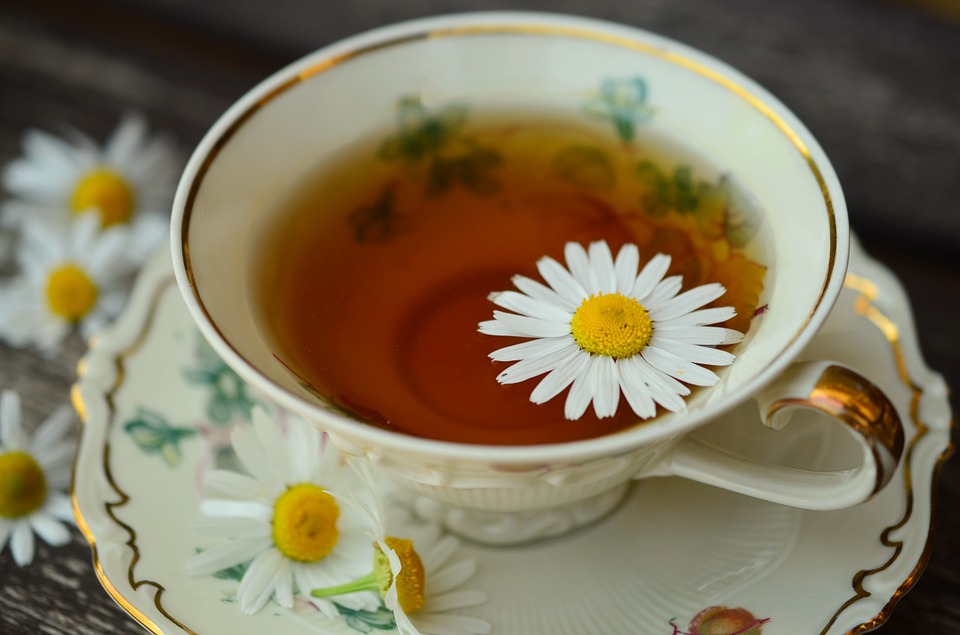
Why it helps: Chamomile contain alpha-bisabolol, which accelerates skin’s healing process, making chamomile a smart choice for post-acne booboos. Chamomile is also an anti-irritant, so it compliments a skincare regimen that may incorporate more aggressive anti-acne ingredients (like retinol).
How to use it: Apply cooled chamomile tea bags to skin or wash face with cooled chamomile tea. Chamomile essential oil is also wonderful. Dilute chamomile oil in a carrier oil (like argan oil) for a fantastic DIY face oil.
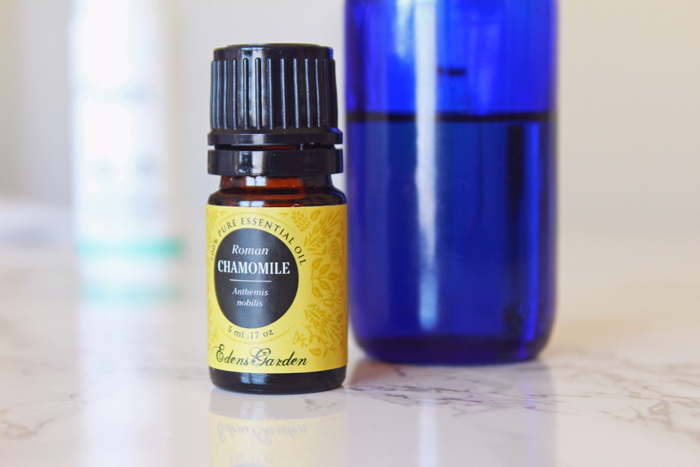
Calendula
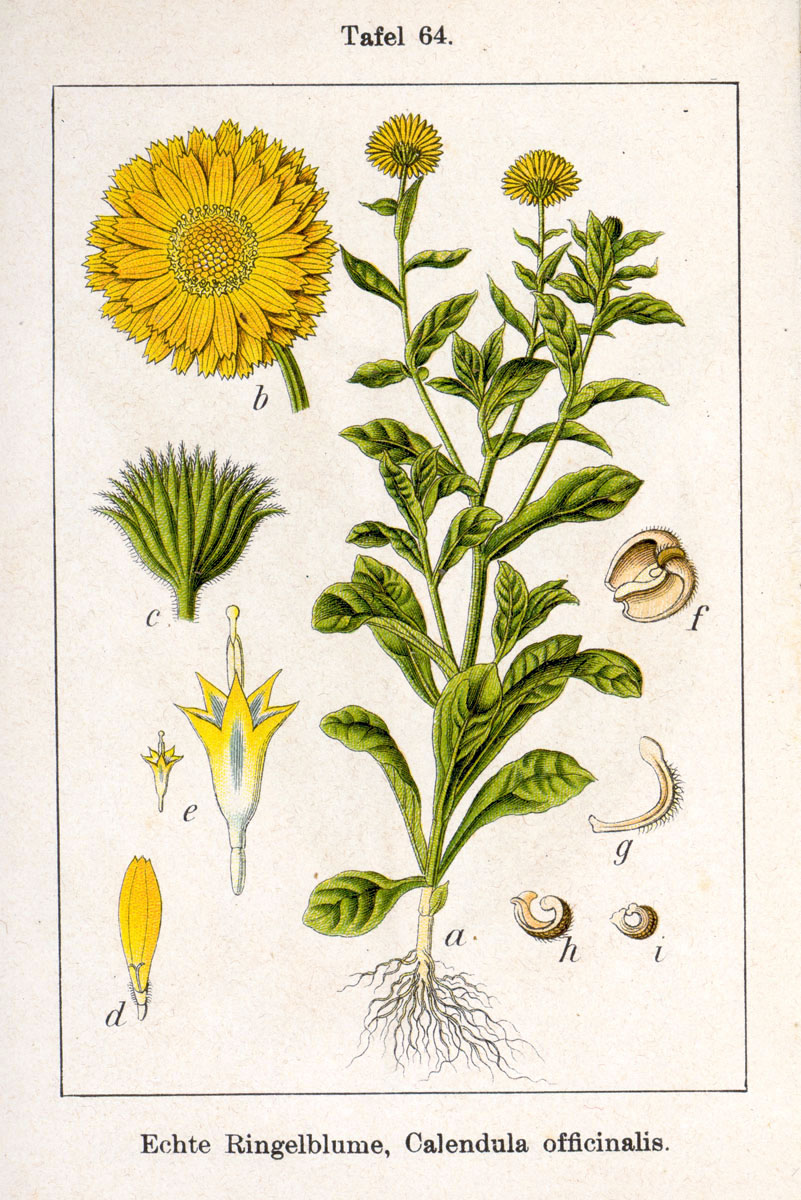
Why it helps: Calendula is anti-inflammatory, anti-bacterial, and anti-viral. It’s also a vulnerary agent, meaning that it helps heal wounds and soothe damaged skin.
How to use it: Make a toner from calendula leaves by brewing them like tea. Store your toner in the refrigerator and apply at least once a day to freshly cleansed skin. Follow with a soothing face lotion or facial oil (a perfect time to use your argan + chamomile blend!).
Cinnamon
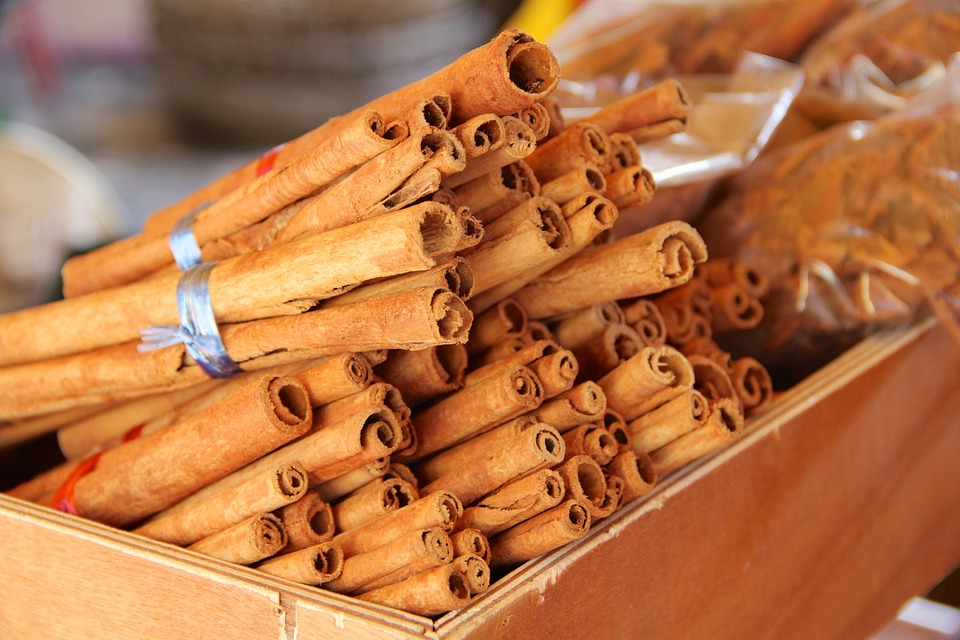
Why it helps: Cinnamon is rich in antioxidants, which help reduce inflammation and protect skin from environmental aggressors. It’s also been associated with blood sugar management. Healthy blood sugar promotes hormonal balance—and hormonal balance is the foundation of clear skin.
How to use it: I would not recommend applying cinnamon to your face, especially if your skin is already inflamed. Rather, make sure you’re getting a little in your diet every day. Sprinkle some on your oatmeal or add some to your coffee grounds before brewing them.
Neem
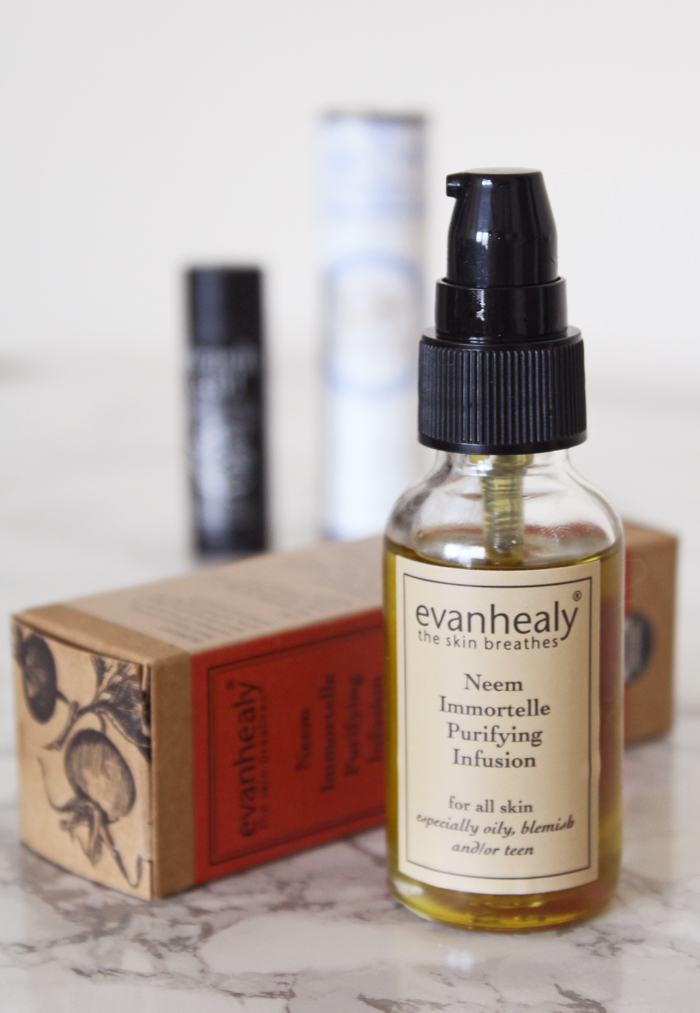
Why it helps: In Ayurvedic tradition, neem is used to “calm heat” or “pacify pitta (fire element).” Excess “heat” is associated with varieties of skin inflammation including acne, rosacea, rashes, over-sensitivity to the sun, and psoriasis. Neem has been used to treat burns, disinfect wounds, bolster skin immunity, and support healthy tissue.
How to use it: Dilute neem essential oil in a carrier oil for an anti-acne facial oil, or try Evanhealy Neem Immortelle Purifying Infusion. This heavy blend is noncomedogenic, but it’s probably best suited for those with acne and dry skin.
Curcumin (found in Turmeric)
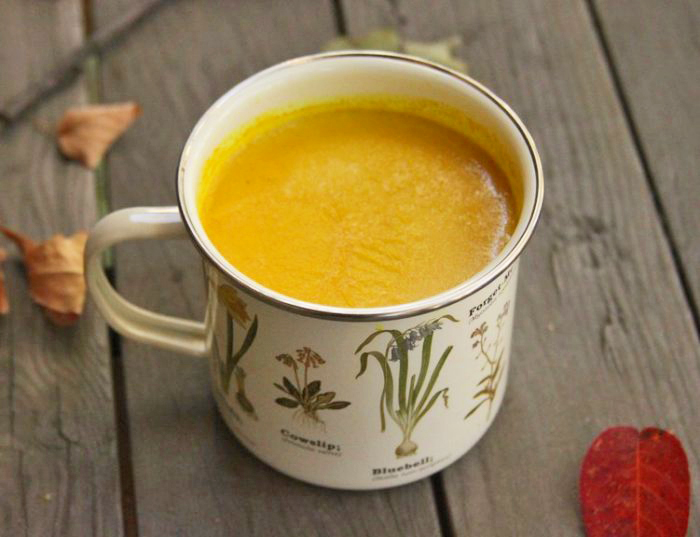
Why it helps: This amazing bright yellow spice is bursting with antioxidants. Although research on curcumin, a component of turmeric, is still young, research suggests that regular ingestion of turmeric may help prevents various cancers and treat skin infections.
How to use it: Cook with it, enjoy it in warm golden turmeric milk, or create a skin-brightening mask using turmeric and garbanzo bean flour.
Vitex
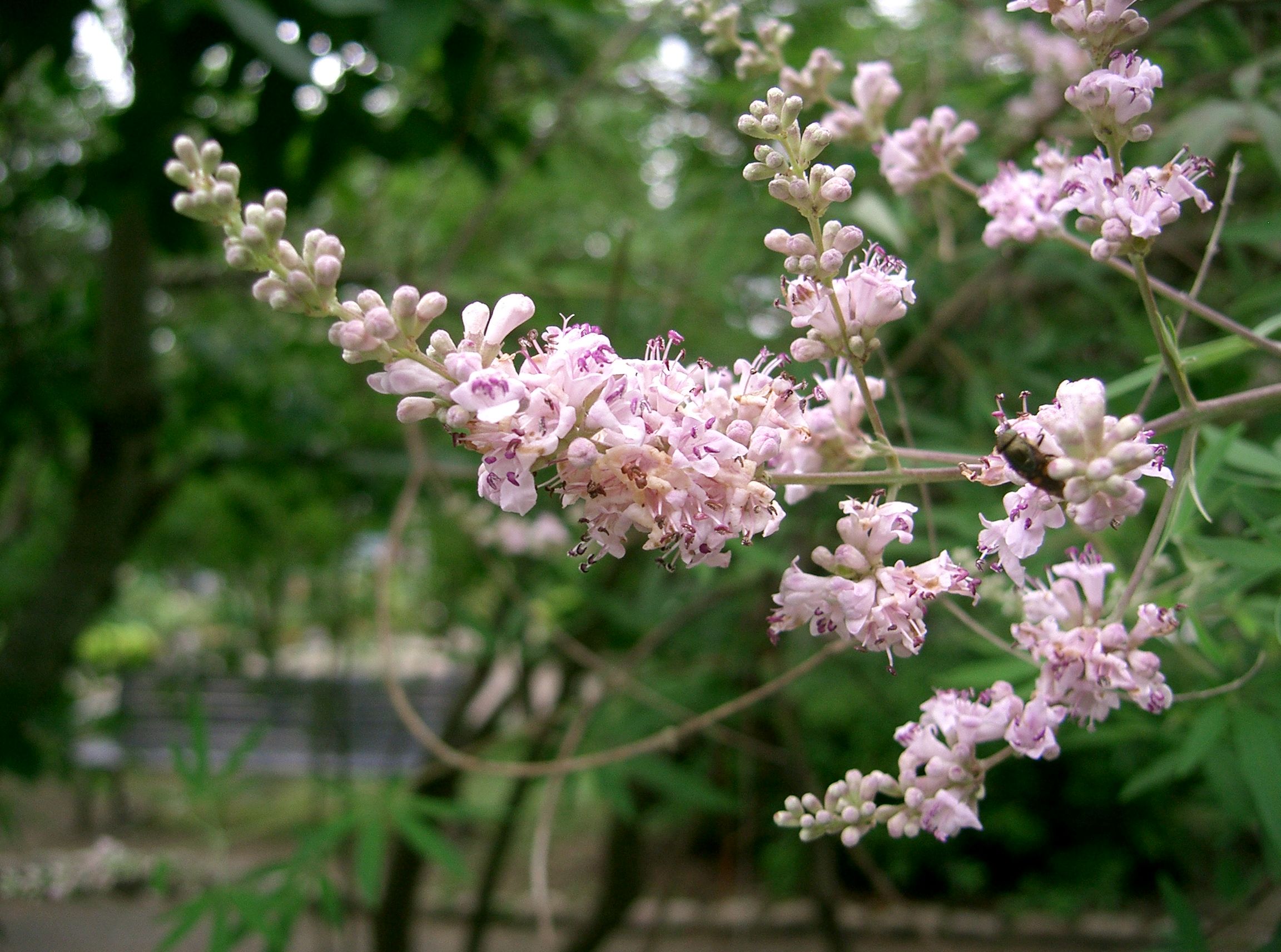
Why it helps: Acne is sometimes a symptom of low progesterone, and vitex supports the pituitary gland, which “tells” the ovaries to produce the adequate amount of progesterone for healthy hormonal functioning.
How to use it: Consume vitex as a supplement first thing in the morning before you’ve had anything to eat. It acts slowly, so you may have to be on it for a few months before you notice any results. (For me, it’s also helped with PMS!)
Tea Tree
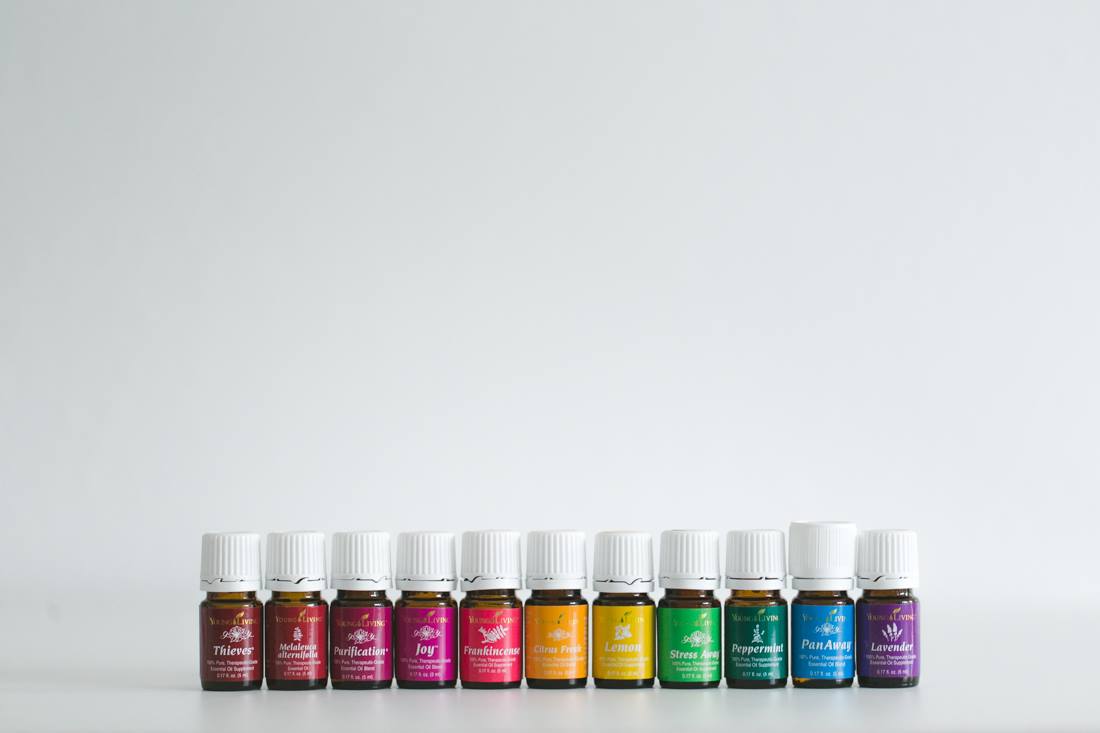
Why it helps: Tea tree essential oil helps fight propionibacterium acnes (P. acnes bacteria). The terpenes in tea tree oil penetrate pores and help clear out the blocked oil that may be exacerbating your breakouts.
How to use it: Tea tree is present in so many natural (and less natural) anti-acne products, so there are endless ways to incorporate it into your regimen. You can also dilute it in a carrier oil to use as a face oil or spot treatment. I recommend doing a small test patch of any tea tree oil product, especially if you have sensitive skin. Do not ingest tea tree oil.
What anti-acne herbs do you turn to for clearer skin?
Related: Yoga for Acne—12 Poses for Clear Skin
Why Hyaluronic Acid Is a Secret Weapon for All Skin Types
Are Probiotics the Secret to Great Skin?
Get more like this—Subscribe to our daily inspirational newsletter for exclusive content!
__
Photo: Pixabay (featured image, chamomile, cinnamon), Mary Hood Luttrell, Molly Lansdowne, Wikimedia Commons (calendula, vitex)




